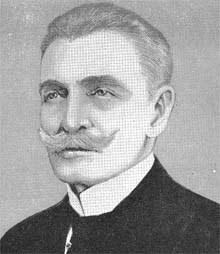3.4.4 The political texts of Enrique José Varona (1849 – 1933), journalism and poetry

Enrique José Varona, in addition to having occupied the platform and reached the men of his time through his sharp speech, bequeathed his political thinking in numerous journalistic and propaganda texts, especially after his break with autonomism in 1887. In “Revista cubana”, heir to José Antonio Cortina’s “Revista de Cuba”, he expressed his independence consciousness not only in purely political articles but also through literary criticism.
His texts “The Right of the Fist,” “The Value of a Concept,” and “Banditry” date from this period. These texts directly address colonialism as a deforming root of Cuban society; however, he went beyond the strictly national to address some of the effects of Spanish rule on the lands of the Americas.
In this regard, while in exile in the United States, he published the momentous manifesto “Cuba Against Spain,” a comprehensive exegesis of the causes that led to the resumption of the independence struggle. Varona would also continue the work of “Patria,” a newspaper founded by José Martí in 1892 in New York, in which he launched an intense propaganda campaign to garner support for the insurgent troops, based on a profound, theoretically supported analysis of the negative impact of colonial administration on all spheres of life on the island.
Raúl Roa would say, “Enrique José Varona was not only one of the most illustrious survivors of the first period of Cuban cultural plenitude. He is also a classic of our America. And he was also a maestro in the legitimate sense of the word. Maestro means guide. And only he who goes ahead, sees further, and aligns his actions with his words can guide.”
In this sense, Varona was consistent in his actions with the evolution of his political thinking. He joined the Mambi troops following the revolutionary outbreak of ’68, but had to leave the field of battle due to health problems. Even during the period of hesitation regarding the viability of independence, he always adopted a nationalist stance and understood in time that the only solution was definitive secession from Spain.
In addition to the texts cited, he collaborated in a number of political and literary publications, including: “Juan Palomo’s Comic, Political and Literary Almanac”, “The Literary Palenque”, “The New Era”, “The Struggle”, “The Trunco”, “The Week”, “The Country”, “Free Thought”, “Elegant Havana”, “Cuban Illustration”, “The Cuban”, “The Figaro”, among others.
Regarding his poetic forays, he won several awards, and his verses were published in the 1904 collection “Arpas cubanas.” His poetry, while not subordinating its aesthetic purpose to political issues, did imply a defined position in this regard. One of his best-known and most aesthetically striking poems is the following, which must have served as inspiration for the poem Mirta Aguirre dedicated to Ernesto Che Guevara, both deeply patriotic:
“-Where are you going with your inflamed eyes,
Orlando the steel of green laurel?
-To search in the forges of time
Men who know how to die or win.
-Where are you going, hiding in the cloak
The bloody dagger and the hard rope?
-To populate with mournful visions
The mind of the servant that enervates pleasure.
-Where are you going with such a quick step?
The sword and the iron buckler clanging?
– To move the sleeping people
Without country, without name, without glory, without law.
-Where are you going, dreadful, deck
Of terror and astonishment the livid complexion?
-To watch men die
Who give their blood as an offering to duty.
-Where are you going, thoughtful, among graves
That the willow does not guard or lull the cypress?
– To moan for the heroes who lie,
Today unknown dust, glorious yesterday.
-Where are you going with your sinister forehead,
The bitten lip, the panting steed?
-To spit on the abject peoples
“Who kiss the foot of a despot, submissively.”








